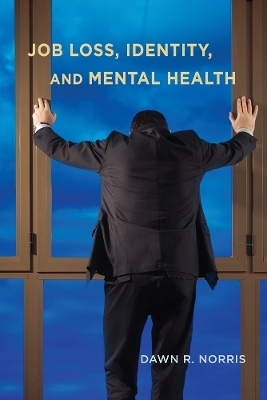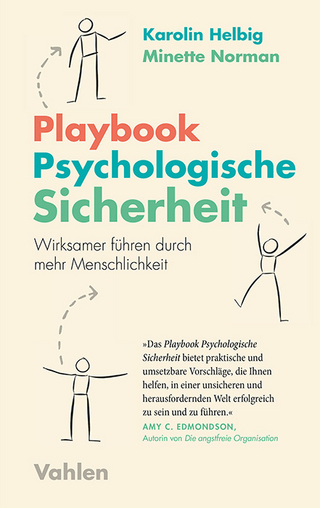
Job Loss, Identity, and Mental Health
Seiten
2016
Rutgers University Press (Verlag)
978-0-8135-7380-9 (ISBN)
Rutgers University Press (Verlag)
978-0-8135-7380-9 (ISBN)
Our jobs are often a big part of our identities, and when we are fired, we can feel confused, hurt, and powerless - at sea in terms of who we are. Drawing on extensive, real-life interviews, Job Loss, Identity, and Mental Health shines a light on the experiences of unemployed, middle-class professional men and women, showing how job loss can affect both identity and mental health.
Our jobs are often a big part of our identities, and when we are fired, we can feel confused, hurt, and powerless—at sea in terms of who we are. Drawing on extensive, real-life interviews, Job Loss, Identity, and Mental Health shines a light on the experiences of unemployed, middle-class professional men and women, showing how job loss can affect both identity and mental health. Sociologist Dawn R. Norris uses in-depth interviews to offer insight into the experience of losing a job—what it means for daily life, how the unemployed feel about it, and the process they go through as they try to deal with job loss and their new identities as unemployed people. Norris highlights several specific challenges to identity that can occur. For instance, the way other people interact with the unemployed either helps them feel sure about who they are, or leads them to question their identities. Another identity threat happens when the unemployed no longer feel they are the same person they used to be. Norris also examines the importance of the subjective meaning people give to statuses, along with the strong influence of society’s expectations. For example, men in Norris’s study often used the stereotype of the “male breadwinner” to define who they were. Job Loss, Identity, and Mental Health describes various strategies to cope with identity loss, including “shifting” away from a work-related identity and instead emphasizing a nonwork identity (such as “a parent”), or conversely “sustaining” a work-related identity even though he or she is actually unemployed. Finally, Norris explores the social factors—often out of the control of unemployed people—that make these strategies possible or impossible. A compelling portrait of a little-studied aspect of the Great Recession, Job Loss, Identity, and Mental Health is filled with insight into the identity crises that unemployment can trigger, as well as strategies to help the unemployed maintain their mental strength.
Our jobs are often a big part of our identities, and when we are fired, we can feel confused, hurt, and powerless—at sea in terms of who we are. Drawing on extensive, real-life interviews, Job Loss, Identity, and Mental Health shines a light on the experiences of unemployed, middle-class professional men and women, showing how job loss can affect both identity and mental health. Sociologist Dawn R. Norris uses in-depth interviews to offer insight into the experience of losing a job—what it means for daily life, how the unemployed feel about it, and the process they go through as they try to deal with job loss and their new identities as unemployed people. Norris highlights several specific challenges to identity that can occur. For instance, the way other people interact with the unemployed either helps them feel sure about who they are, or leads them to question their identities. Another identity threat happens when the unemployed no longer feel they are the same person they used to be. Norris also examines the importance of the subjective meaning people give to statuses, along with the strong influence of society’s expectations. For example, men in Norris’s study often used the stereotype of the “male breadwinner” to define who they were. Job Loss, Identity, and Mental Health describes various strategies to cope with identity loss, including “shifting” away from a work-related identity and instead emphasizing a nonwork identity (such as “a parent”), or conversely “sustaining” a work-related identity even though he or she is actually unemployed. Finally, Norris explores the social factors—often out of the control of unemployed people—that make these strategies possible or impossible. A compelling portrait of a little-studied aspect of the Great Recession, Job Loss, Identity, and Mental Health is filled with insight into the identity crises that unemployment can trigger, as well as strategies to help the unemployed maintain their mental strength.
DAWN R. NORRIS is an assistant professor of sociology at the University of Wisconsin–La Crosse.
Acknowledgments1 Introduction2 Why Identity?3 “That’s Not the Way We Do It at Gentay”: Feedback Mismatches4 “I Wasn’t the Same Person”: Time Mismatches5 “Me Caveman . . . I Club Deer”: Status Mismatches6 “On the Mommy Track”: Shifting7 “It Was Like I Was Still Working”: Sustaining8 “Like You’re Dead and Nobody Told You”: Identity Void9 ConclusionAppendix A: MethodologyAppendix B: Additional ConsiderationsNotesReferencesIndex
| Erscheinungsdatum | 26.05.2016 |
|---|---|
| Zusatzinfo | 1 figure, 2 tables |
| Verlagsort | New Brunswick NJ |
| Sprache | englisch |
| Maße | 152 x 229 mm |
| Gewicht | 426 g |
| Themenwelt | Geisteswissenschaften ► Psychologie ► Arbeits- und Organisationspsychologie |
| Geisteswissenschaften ► Psychologie ► Sozialpsychologie | |
| Sozialwissenschaften ► Soziologie ► Mikrosoziologie | |
| ISBN-10 | 0-8135-7380-7 / 0813573807 |
| ISBN-13 | 978-0-8135-7380-9 / 9780813573809 |
| Zustand | Neuware |
| Informationen gemäß Produktsicherheitsverordnung (GPSR) | |
| Haben Sie eine Frage zum Produkt? |
Mehr entdecken
aus dem Bereich
aus dem Bereich
neue Beschäftigte erfolgreich integrieren
Buch | Softcover (2024)
Hogrefe (Verlag)
26,95 €
wirksamer führen durch mehr Menschlichkeit
Buch | Softcover (2024)
Vahlen (Verlag)
21,90 €


